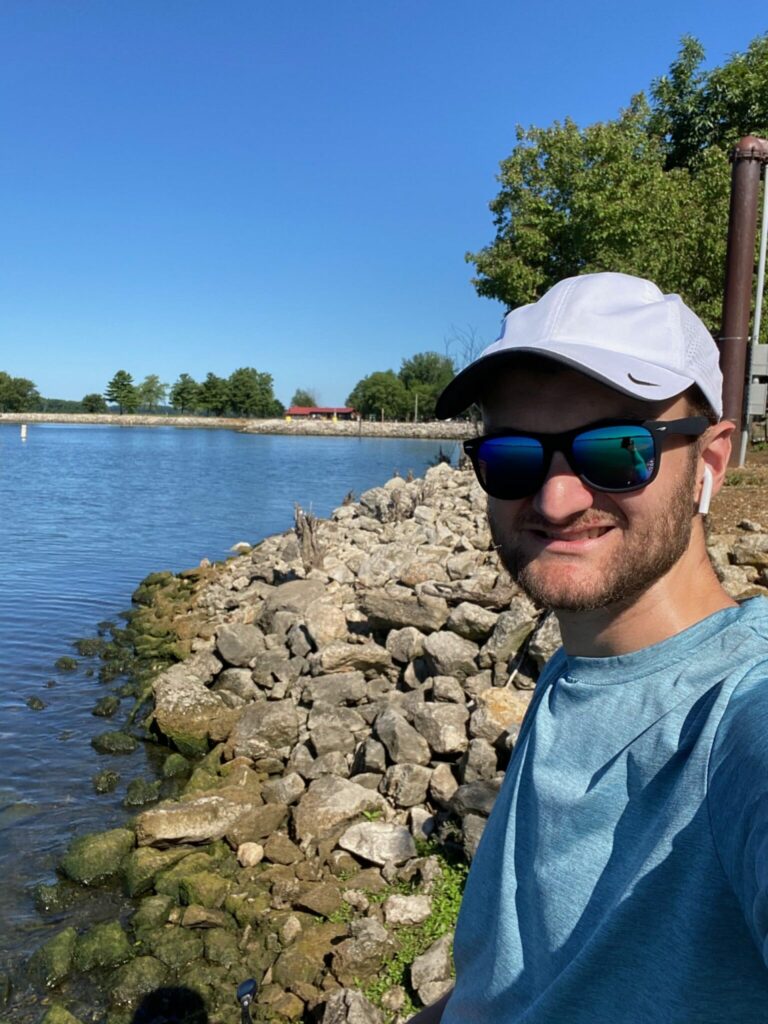It’s a Sunday in January 2020. I am sitting in the hospital emergency room awaiting the results of an ultrasound for month-long sore groin pain. The ER doctor explains to me that there is a “spot” on my right testicle.
“What?! A spot?!” I begin to spiral mentally.
I get called back to meet with the resident urologist and a nurse. He says, “Time for a serious conversation. You probably have cancer.”]
“Uhhhh!” It hits me like a ton of bricks. Cancer?? “What do I do now?? How is this possible?? Did I do something wrong??”
I go home and wait for a phone call from the urologist’s office, who schedules me for outpatient surgery three days later.
It’s Wednesday. My parents take me to the hospital for surgery. The operation is called a right orchiectomy and will remove my entire right testicle. At this point, it is unknown for sure whether I have cancer. But, the urologist is very sure about this. My procedure lasts about an hour and I wake up.
I ask, “How did it go?” They say, “It went well.”
The recovery goes smoothly and I’m moving around pretty close to normal within one week. Use of pain medicine is minimal. When I go for my follow-up, my urologist drops several “bombs” on me. This follow-up is A LOT. The pathology report confirms that my right testicle did, indeed, have cancer in it.. I get referred to an oncologist because it’s spread into at least one of my abdominal lymph nodes and perhaps my liver. Besides cancer, the CT scan also shows that I was only born with a right kidney and also had an ascending aortic aneurysm.
I walk out of that appointment with a singular mission in mind to get rid of cancer. The other two things can be monitored and are not pressing. The oncologist wants to see whether the spot on my liver is cancerous.
It’s benign. “Whew!” One less thing to deal with.
Now, back to the oncologist for the treatment plan. Since cancer was only thought to be in my abdomen, he refers me to a world-renowned center for testicular cancer care in the next state. I just need to get an appointment. This is where my mind goes hyper-focused on working through the medical system and playing the “communication game.” I call back-and-forth with my oncologist’s nurse and this cancer center. I get an appointment in the first week of February.
I go to the appointment with my parents… COVID-19 restrictions aren’t yet in place. When I meet with the oncologist, I have three options:
- Surgery to remove all lymph nodes from my abdomen
- Chemotherapy treatment
- Surveillance.
I choose to move forward with the surgery; I’m referred to a urologist and scheduled for next week. Again, so many phone calls back-and-forth with medical staff. Persistence is key.
Second week of February: second surgery; a non-laparoscopic open surgery with a 7-in incision on my abdomen.
This is ROUGH! I’m in the hospital for three days afterwards. It takes two and a half weeks to recover at home before returning to work. Then I still have to take it very easy and slow while navigating the hallways and rooms at work. At this point, I thinkI might be done and ready to just be on surveillance.
A month passes. I’m back at home, and I call my urologist’s office to ask for another ultrasound regarding a very slight bump on my left, remaining testicle. There’s something there. I’m very grateful the nurse gets me in quickly. I have always been a constant worrier. In this instance, it helps me.
March. I have my follow-up at the cancer center. I show my doctors the ultrasound results. Turns out, there is no change in the left testicle lesion since January. So, I’m put back on surveillance with scans scheduled for May.
May. My first three scans all came back normal and no sign of cancer, but an ultrasound indicates a slight increase in the lesion on the left testicle. I meet a few days later with my urologist via video conference. He recommends an investigative surgery to do a partial orchiectomy with a possibility for a full orchiectomy if the lesion is cancerous.
At this point, I’m getting insurance claims and provider bills. My parents and I have a good talk about “playing the insurance system.” I’m quite bitter and angry toward it all. But, I call my insurance company to ask about other doctors available in their network who could do this same surgery. I find one not far from where I grew up.
June. I go in for Surgery #3, a left partial orchiectomy with a possible full orchiectomy. It does turn out to be a full orchiectomy, since the lesion had the same cancer.
I am on a strict schedule of surveillance for the next three years. I have gotten on testosterone replacement therapy and am monitoring that. I have come to learn that every cancer survivor’s story is unique and worth equal weight amongst others. What matters most is that you are persistent, self-advocate, and aware of your body. It is an immense boost to have family and friend bonds to rely on for community support.
By Gordon McKavanagh

